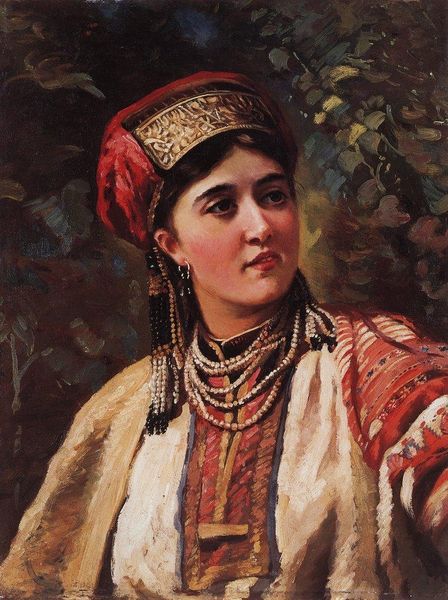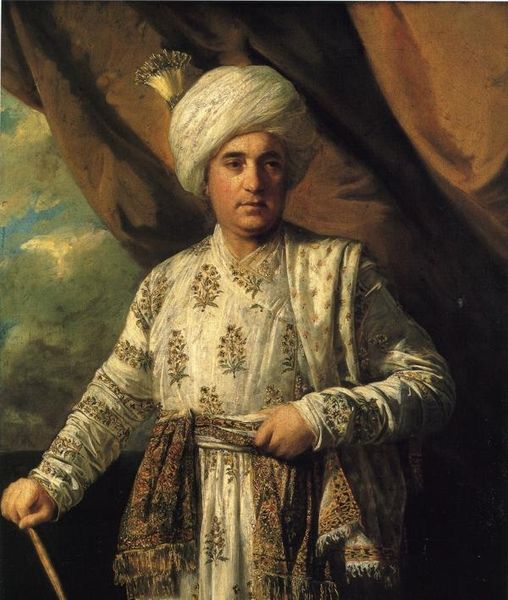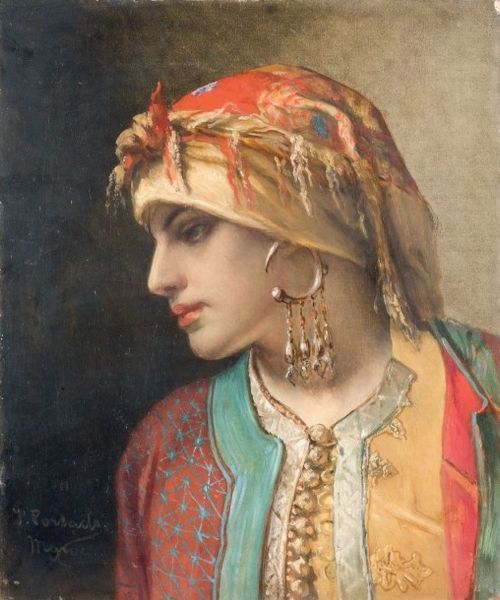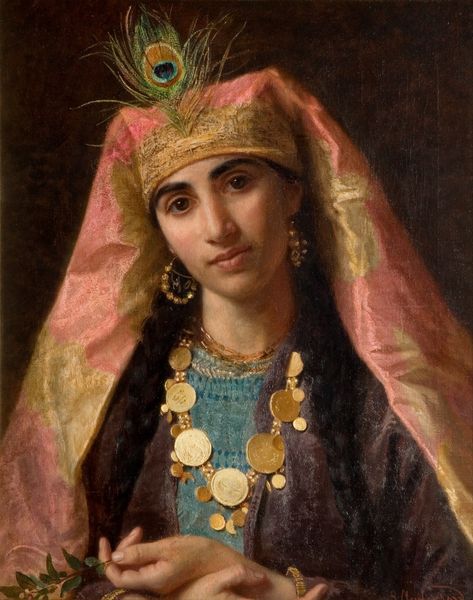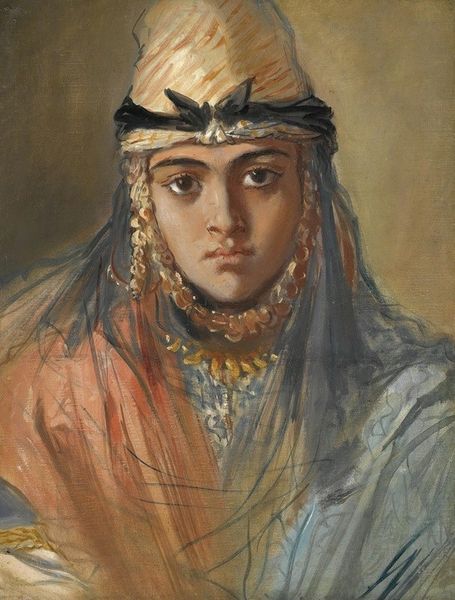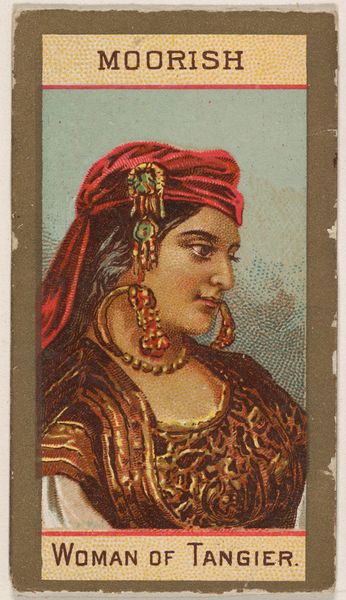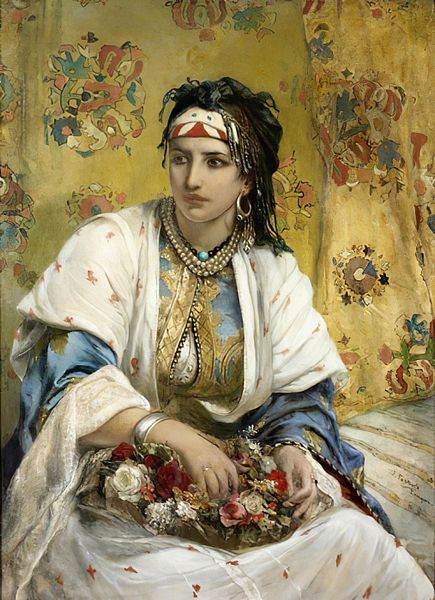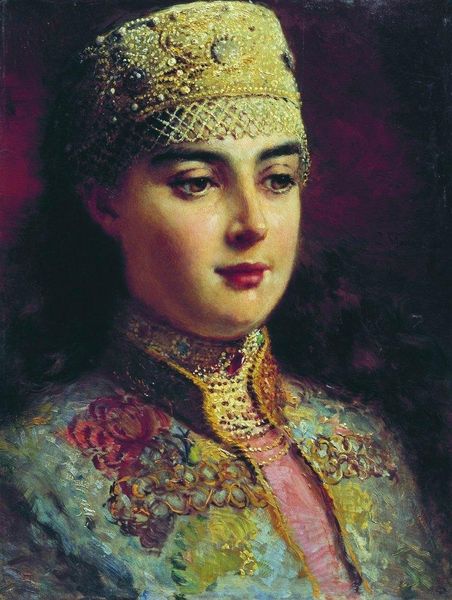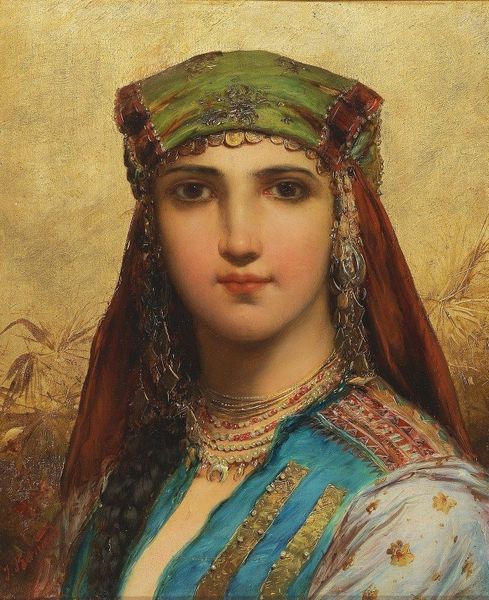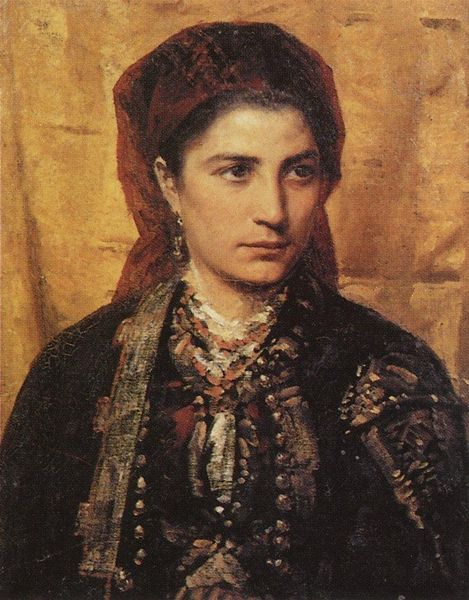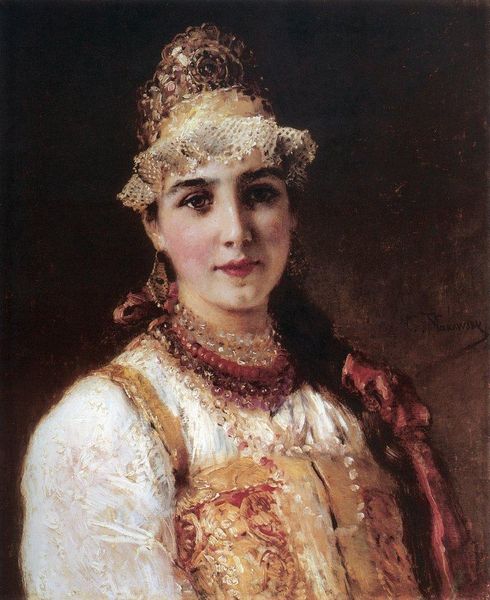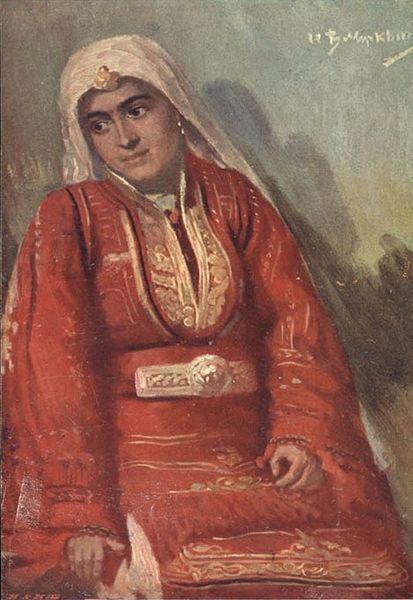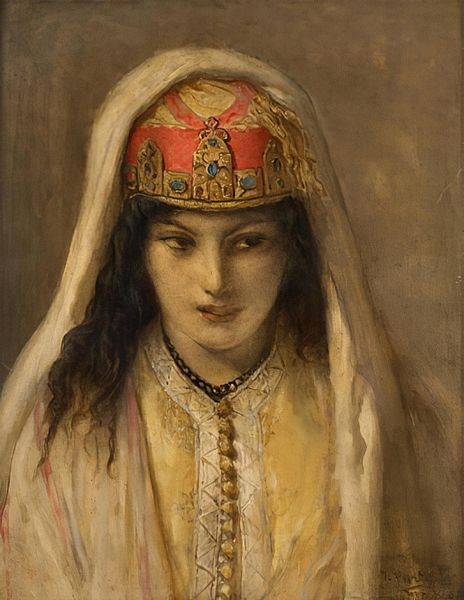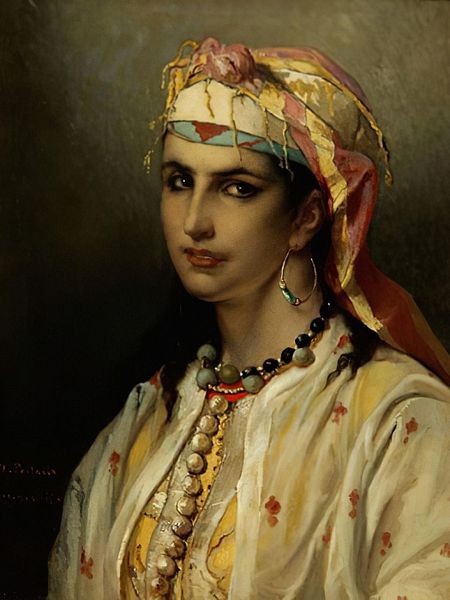
Copyright: Public domain
Curator: What strikes me first is the detail of her clothing; it has a textural quality almost at odds with the smoothness of the face. Editor: Yes, that's a crucial juxtaposition. We are looking at “Radka Hadzhinikolova in a Macedonian Costume” by Ivan Mrkvička, completed in 1880 using oil paint. But the costume is really what holds the focus, isn't it? Its ornate designs point to socio-cultural layers. The garment serves as more than just clothing. Curator: Absolutely. This isn't just a portrait of a woman; it's a representation of cultural identity and perhaps national pride. Think about the time. What does it mean to display Macedonian costume so prominently? It speaks to regionalism and the broader narratives of empire. We could even connect it to ongoing discussions about cultural appropriation in contemporary fashion. Editor: That's fascinating. My initial focus was purely on the artistry, the artist's deliberate composition. See how the dark background throws the golds and floral patterns forward? The painterly handling of her sleeve and bodice shows incredible skill. But to consider it in light of questions surrounding power dynamics is essential. Do we know if she chose to be painted wearing that? Or was it part of how the artist envisioned representing the region? Curator: Those are valid questions. There could be a romanticizing gaze from the artist; an orientalist viewpoint worth examining. Who was the painting made for? How does it fit within Mrkvička's wider body of work, especially given the political complexities of Macedonia during the late 19th Century? Her passive expression also invites debate: agency versus objectification, perhaps? Editor: You’ve completely reframed how I saw this! On one hand, there is artistic merit to appreciate the surface texture of the embroidery. On the other, context reminds me that even aesthetic pleasure can require us to scrutinize our perspective. Thank you for offering that additional critical lens. Curator: My pleasure; it serves to show just how one can learn something new each time when observing this particular piece!
Comments
No comments
Be the first to comment and join the conversation on the ultimate creative platform.
